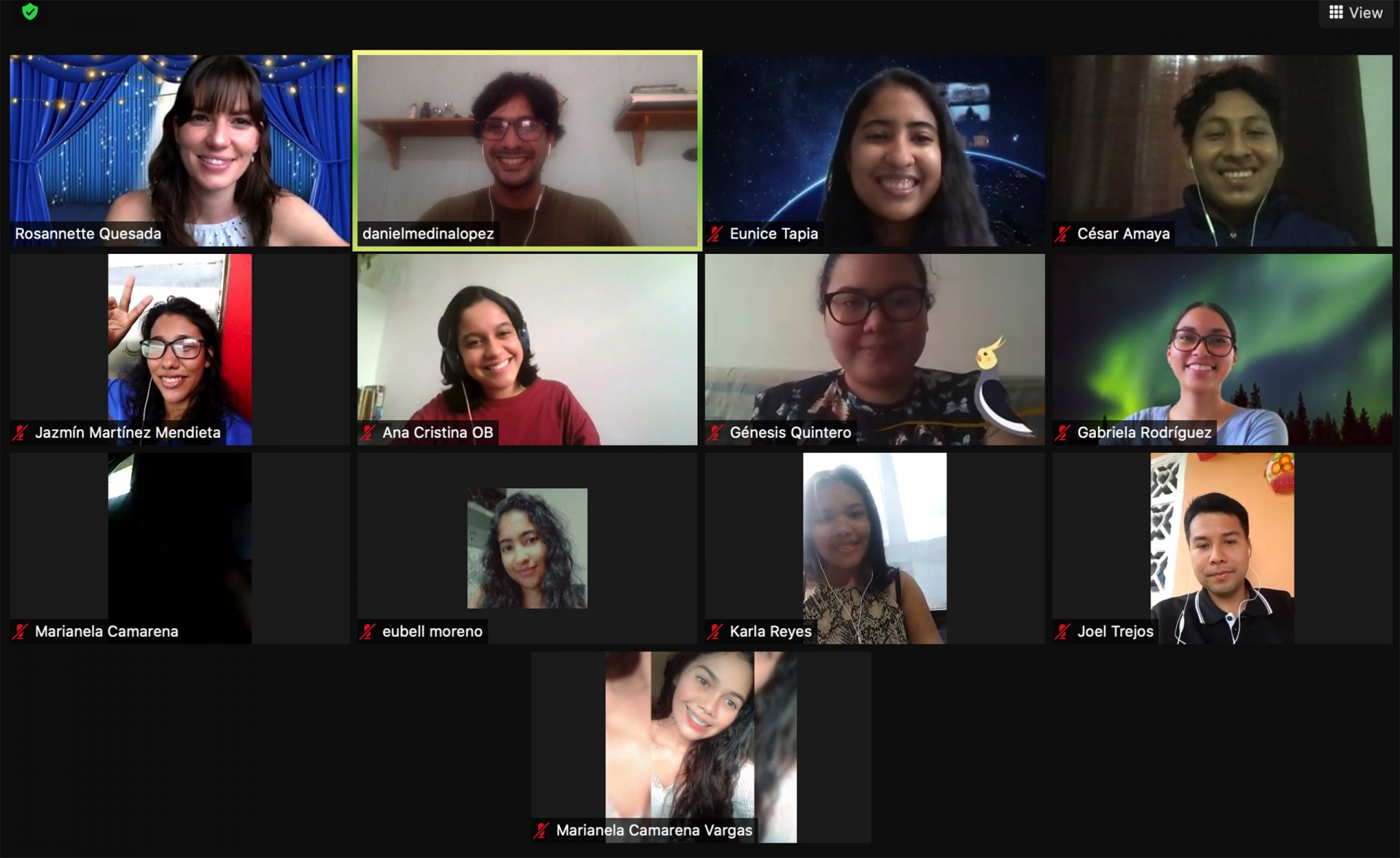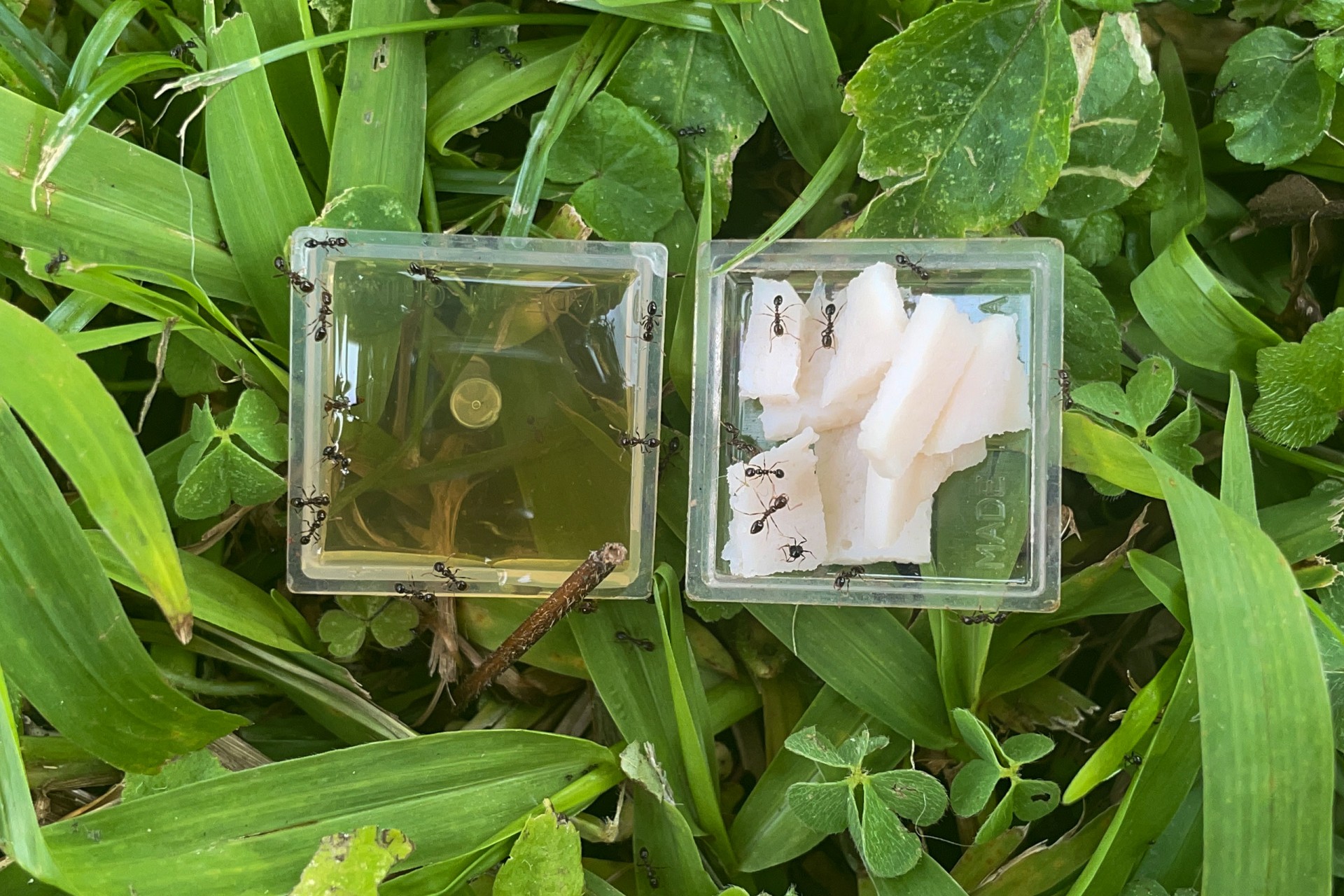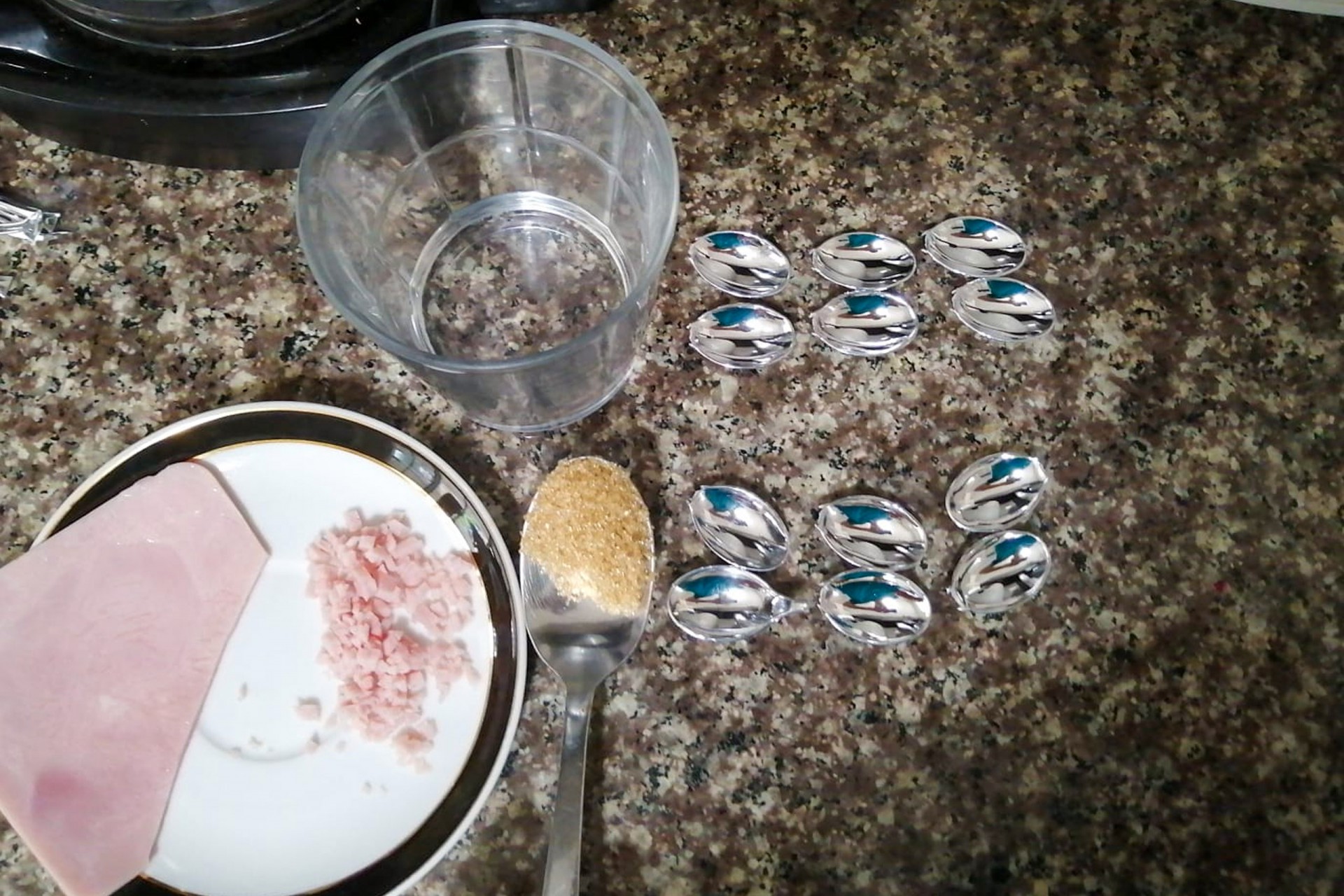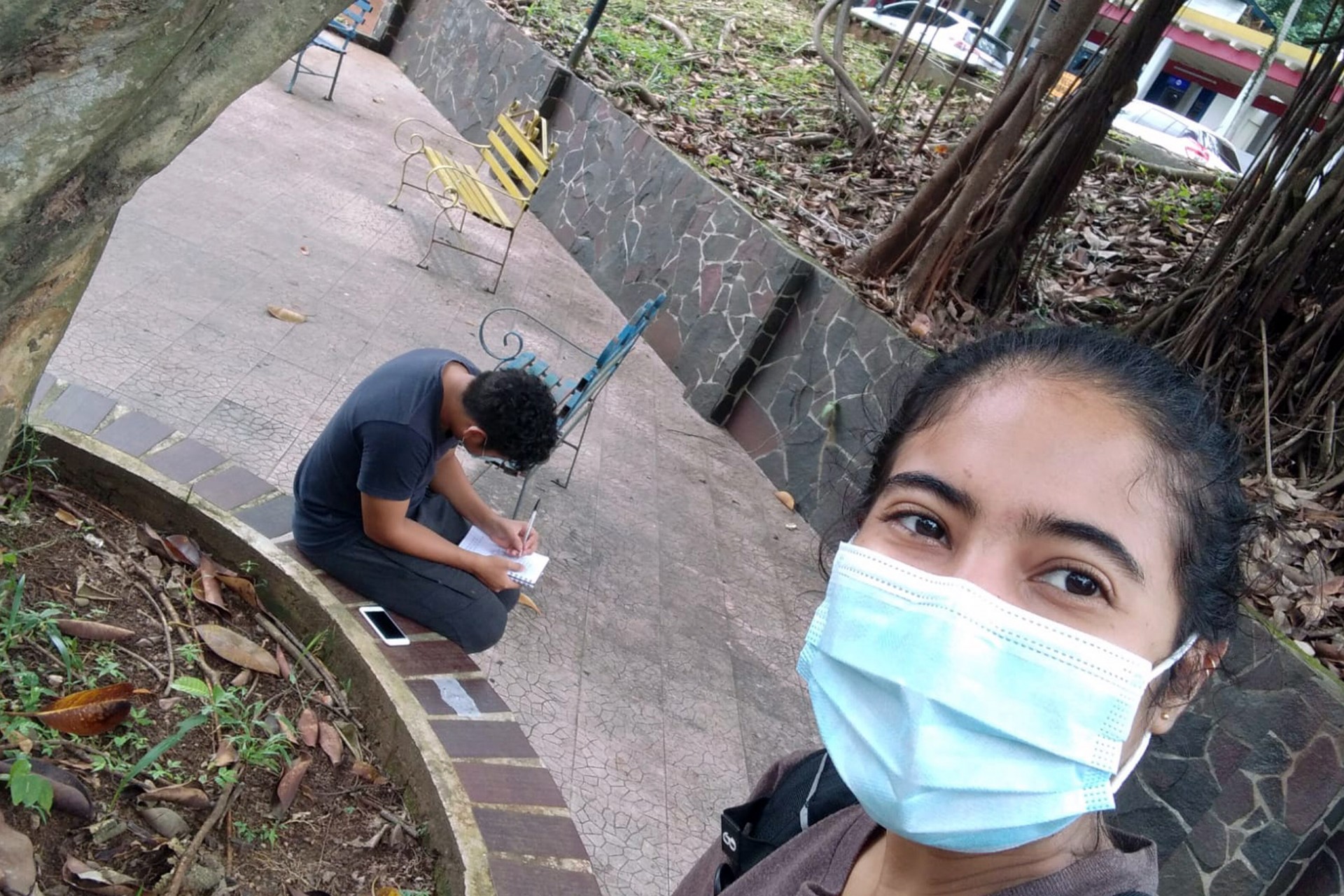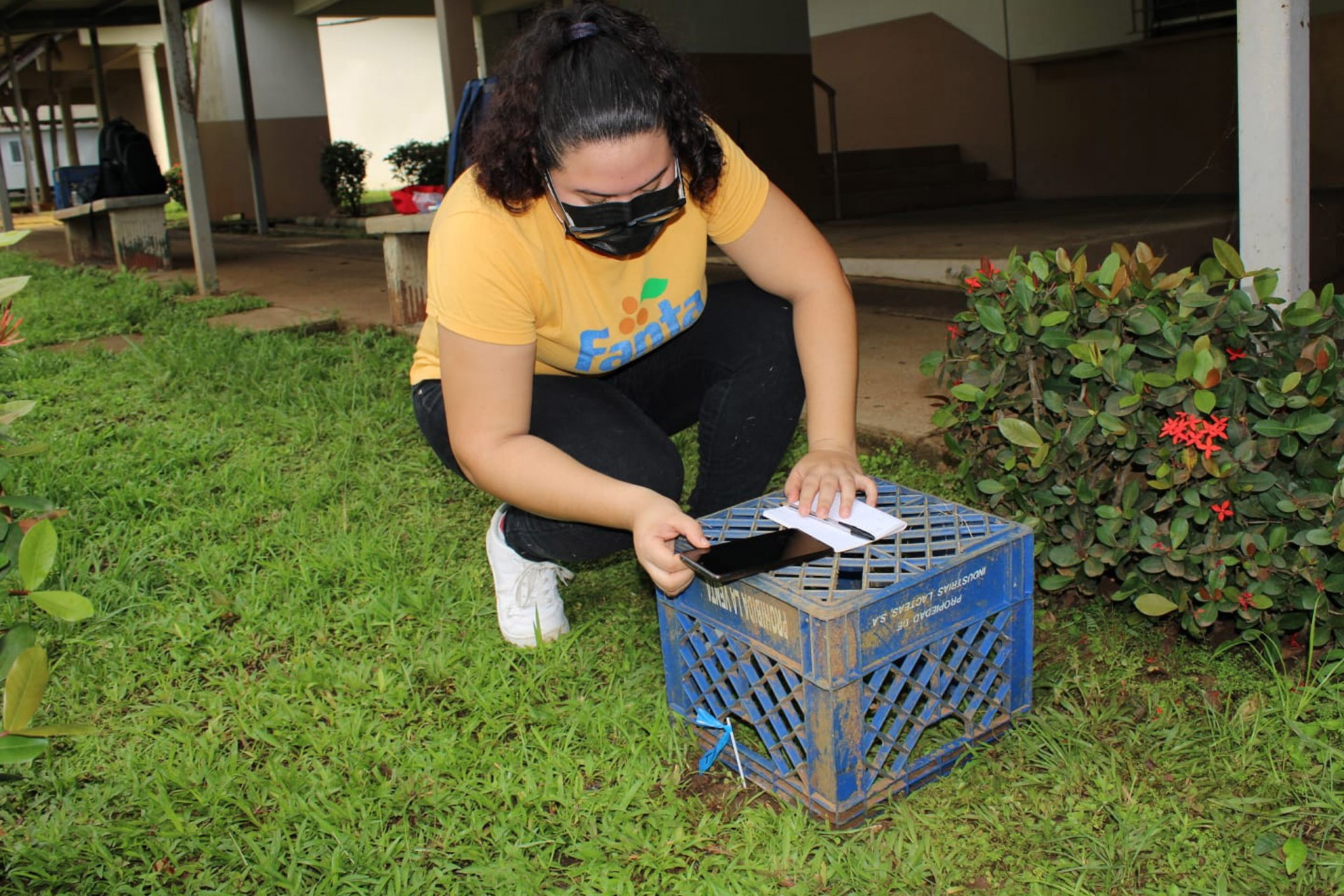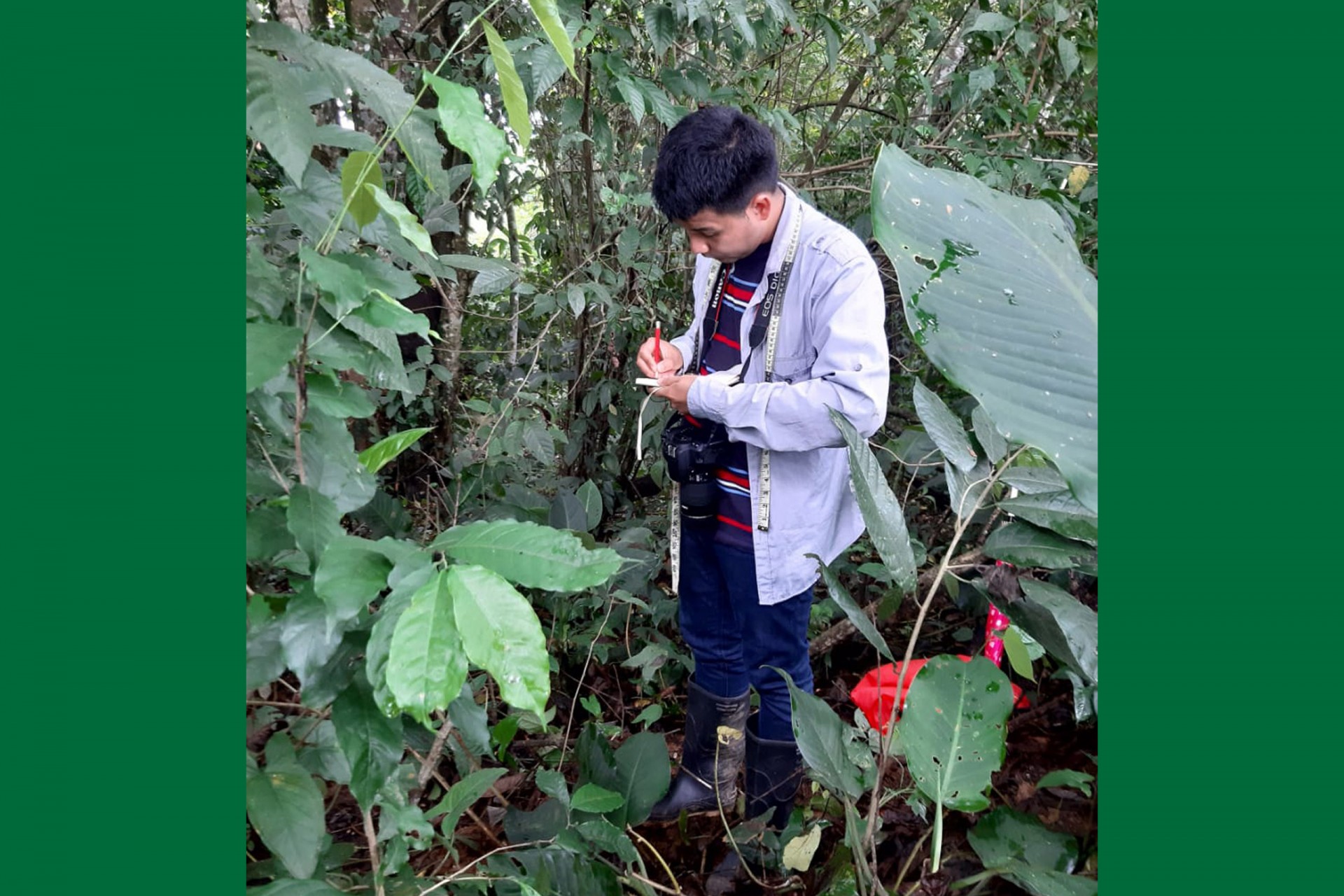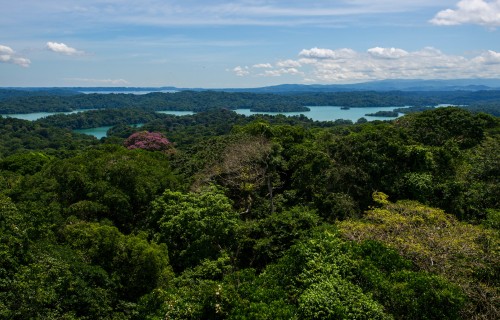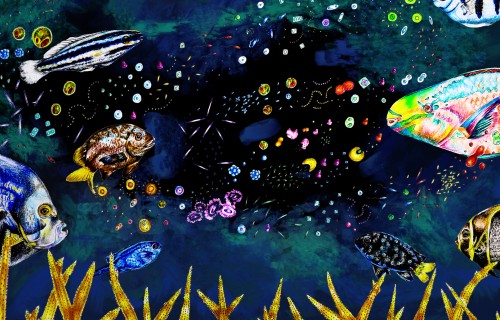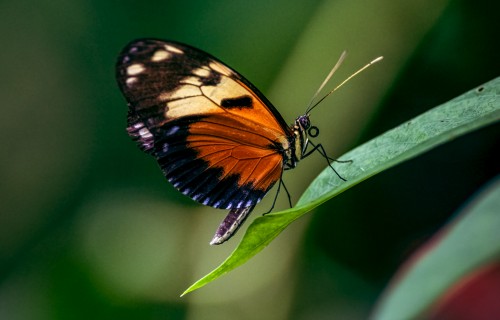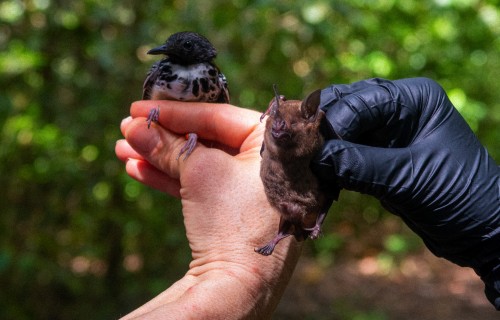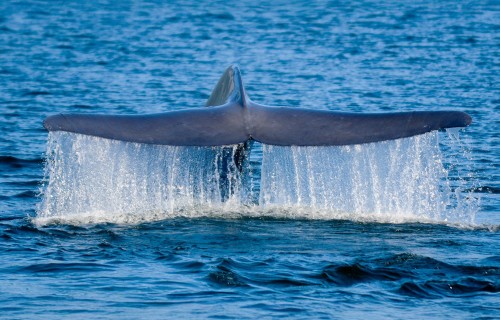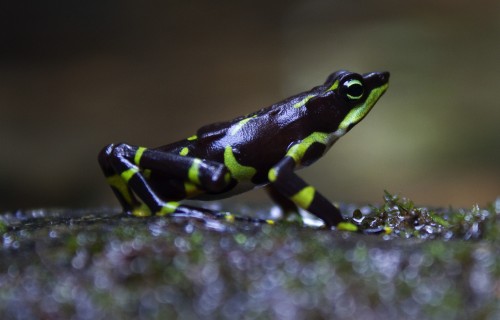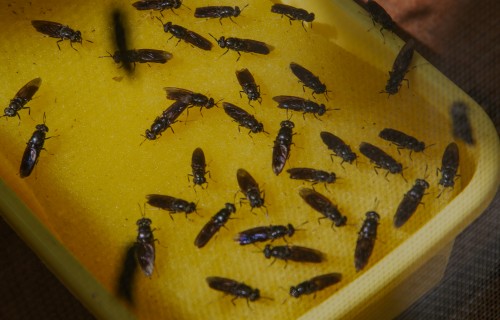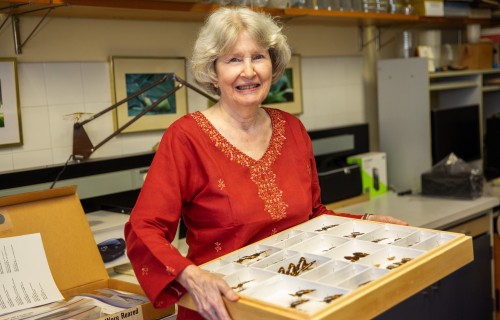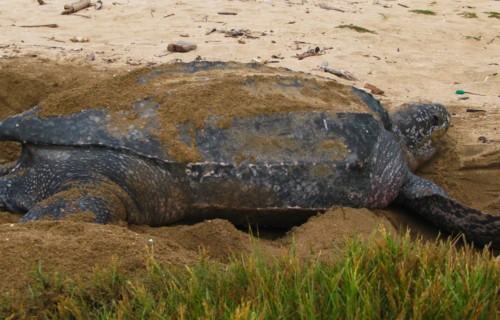For the first time since records began,
the cold, nutrient-rich waters of the
Gulf of Panama failed to emerge
Home
Science
First “Virtual Gigante”
is a success
Text by Leila Nilipour
Translation by Sonia Tejada
After being taught annually for three decades, the Smithsonian Introductory Field Life Sciences Course was suspended due to the pandemic, but it made a digital comeback in 2021.
Every year, a group of Panamanian students learn about tropical biology in the course "Introduction to Biological Sciences in the Field", better known as the Gigante Course. During the two-week training, which is named after the Gigante Peninsula of the Barro Colorado Natural Monument, young scientists-in-training take what they have learned in the classroom and put it into practice, led by researchers from the Smithsonian Tropical Research Institute (STRI) and other institutions.
A fundamental component of this course and the field work is precisely being able to be in the “field”, something that has been limited in the last two years due to the COVID-19 pandemic. First, due to the mobility restrictions imposed in Panama in 2020 and second, because a large part of education and work in the country remained in virtual mode during 2021.
Last year, eleven students from Panama City, Panama Oeste, Coclé, Colón, Los Santos, Chiriquí and Bocas del Toro participated in the course "Introduction to Biological Sciences in the Field", better known as the Gigante Course, this time on virtual mode. Credit: Daniel Medina.
With these limitations in mind, but with the conviction that science education must continue and thanks to the encouragement of STRI scientist Sabrina Amador, in August 2021 the Gigante Course was taught virtually to 11 students from Panama City, Panama Oeste, Coclé, Colón, Los Santos, Chiriquí and Bocas del Toro.
"This course has been taught every year since the late 1980s, but in 2020 it was not offered due to the pandemic," said Adriana Bilgray, manager of academic programs. "This year we decided to take a risk and offer it virtually, and thus motivate students to bring out their creativity, open their minds and tell them: “You can do science wherever you are."
Over the course of two weeks, a series of speakers and researchers from STRI and other institutions from different parts of the world, such as Costa Rica, Canada, Germany, Mexico and Brazil, committed to the Virtual Gigante Course. Among them, Daniel Medina and Rosannette Quesada-Hidalgo as its coordinators, and several others who presented talks or advised the students in their research projects.
During the course, each student carried out 4 group research projects, some even among students from different provinces, which allowed them to carry out experiments with samples from different areas of the country (mostly, from their own backyards).
For example, a study that explored the abundance of terrestrial arthropods in humid and dry environments was able to make comparisons between four provinces: Bocas del Toro, Chiriquí, Coclé, and Los Santos. Another experiment, on the preferences of insects regarding flower colors, had samples from the provinces of Colón, Panama Oeste, Los Santos and Panama.
Each participant in the Gigante Course also carried out an individual project, on a diversity of subjects and study organisms, from fungi and mites, to spiders, ants, butterflies, bees, flowers and even water quality.
Despite not being able to share in person and the difficulties to carry out their research projects without being properly "in the field", the students (the Giants) never lost their motivation and desire to learn. In the “virtual mural” they created to express their thoughts, suggestions and ideas, one of them reflected on the experience:
"This course taught me how important science is and how beautiful it is when it is done with responsibility, empathy and respect, without oppressing others’ ideas," he said.
"These Giants represent an extraordinary example of how to integrate the power of observation with curiosity and creativity to carry out fantastic ecology projects in the tropics," said the coordinators, Daniel Medina and Rosannette Quesada-Hidalgo. "Despite having few resources and being in environments little related to the outline of a field biology course."

